Industrial Control PCB
Elevate Your Industrial Systems with Highleap’s State-of-the-Art Control PCBs.
Definition of industrial control board
Industrial Control PCB Boards are specialized circuit boards used in industrial production systems. Unlike commercial off-the-shelf boards, these are tailored to specific requirements.
These boards serve as the backbone of industrial control systems and are equipped with input and output (I/O) circuits to connect with external peripheral devices like valves, motors, and sensors.
Dedicated boards are designed for specific operations, such as temperature control boards used for regulating heat in devices and environments through thermocouples and heating contractors.
Industrial Control PCB Boards are constructed with non-conductive bases and copper traces and pads that interconnect the assembled components. They can be single-layer, double-layer, or multiple-layered, depending on the complexity of the application
These boards offer programmability, allowing users to set functions according to their needs, making them versatile and adaptable for different projects. For example, a Programmable Logic Controller (PLC) is a type of industrial control board that executes various operations based on programmed inputs.
In summary, Industrial Control PCB Boards are integral to industrial automation and provide reliable control and communication functionalities for optimizing industrial processes and systems.
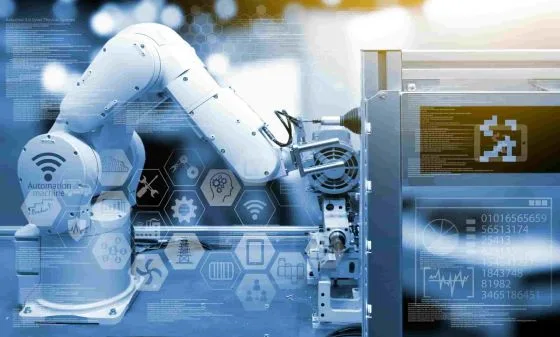
Why PCB Boards Are Essential for Industrial Controls
PCB boards are widely used in industrial control systems due to their vital role in managing complex automation processes efficiently and reliably. The key reasons why PCBs are well-suited for industrial controls are:
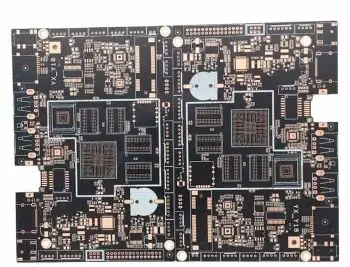
Compact Size
PCBs allow for dense component layouts which fit into tight spaces on industrial machines. This minimizes footprint and wiring.
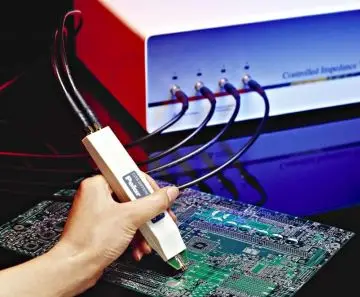
Reliability
The laminated construction and copper traces prevent loose connections and resist vibration/shock in harsh factory conditions.
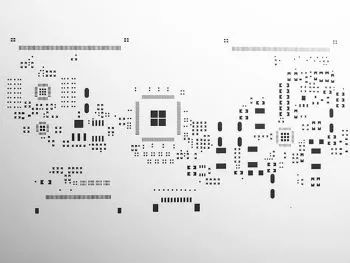
Customization
PCBs can be tailored to meet specific voltage, current, layout and form factor needs.
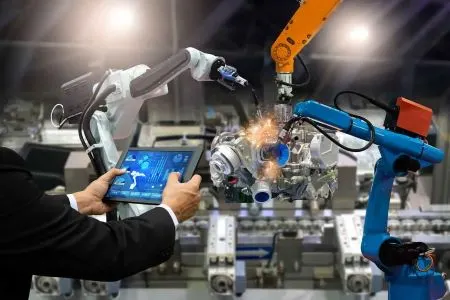
Safety & Standards
Following design guidelines ensures PCBs meet safety certifications and industrial compliance standards.
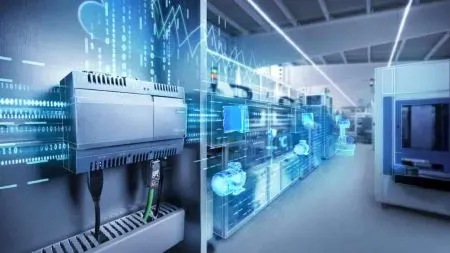
Cost Effectiveness
Automated assembly keeps PCB production costs low despite high-volume demand.

Performance
Careful layout preserves signal integrity for precision control and monitoring.
At Highleap, we leverage these benefits of PCB technology to design and manufacture optimized, reliable control boards for industrial automation. Our expertise in PCB design and fabrication enables us to deliver high-quality solutions tailored to your specific industrial control needs.
In summary, PCBs are the optimal technology for building reliable, high-density, standards-compliant and cost-effective solutions for automated industrial processes. Their unique benefits make them indispensable for modern smart factory applications.
Application of PCB in Industrial Control
PCB boards have extensive applications in industrial control, serving as core components of industrial control systems, providing essential functions for circuit connections and signal transmission. The following are the main applications of PCB boards in industrial control:
Control Mainboard
PCB boards are commonly used as control mainboards in industrial control systems, integrating various control logic and processors to manage and control the operation of industrial equipment.
Interface Board
PCB boards are used to connect various sensors, actuators, and other peripheral devices for data acquisition and control signal transmission.
Signal Processing Board
In industrial control systems, many signals require processing and conversion, such as analog-to-digital signal conversion, and PCB boards handle these signal processing functions.
Communication Board
Industrial control systems often require communication with other systems, and PCB boards are used to implement different communication protocols and interfaces, such as Ethernet, RS-485, CAN, etc.
Power Supply Board
PCB boards are also used for power supply in industrial control systems, providing stable and reliable power to various components and devices.
Driver Board
PCB boards control and drive various actuators, such as motors, valves, etc., enabling precise motion and control.
Alarm and Safety Board
Industrial control systems require alarm and safety protection functions, and PCB boards are used to implement various alarm sensors and protection control logic.
Data Acquisition Board
Industrial control systems require the collection of a large amount of data, such as temperature, pressure, flow, etc., and PCB boards are used for data acquisition and transmission.
Converter Board
In some special applications, PCB boards are used to realize signal conversion and processing, such as analog signal to frequency signal conversion.
Overall, PCB boards play a critical role in industrial control, facilitating circuit connections, signal processing, communication, and control functions, providing a solid foundation for the efficient operation and reliability of industrial control systems.Transform your factory with Highleap’s scalable, robust Industrial Control PCBs – accelerating digitalization and revolutionary capabilities.
Choose Highleap’s industrial control PCB

Full Expertise
Highleap specializes in industrial control PCBs, providing tailored solutions for your needs, including high density, high performance, high-speed signal transmission, and harsh environment operation. Our experts offer professional support and service.

Robust Supplier Network
We collaborate with outstanding suppliers, ensuring access to high-quality stencil materials and advanced laser-cutting equipment. This partnership ensures that we can provide laser-cut PCB stencils at optimal cost and efficiency while guaranteeing timely delivery.

Strict Quality Control
Highleap’s strict quality control standards cover every step from raw material procurement to production, ensuring reliable Industrial Control PCBs that meet industry standards and your specific needs. Our superior quality guarantees smooth system operation, minimizing the risk of maintenance and failures.
